Monday Morning News & Notes
Climate Change goes after your coffee and wine. Europe braces for Trump.
Cable Sabotage
The Chinese freighter Yi Peng 3 remains at anchor in the Kattegat Strait as the maritime stalemate continues. Military vessels from Germany, Denmark, and Sweden continue to keep a constant vigil on the freighter suspected of deliberately sabotaging two undersea data cables on the Baltic seafloor two weeks ago.
Swedish Prime Minister Ulf Kristersson confirmed discussions between his country, Denmark, Germany, and China continue to try and find a way forward. Kristersson says he has requested China direct the freighter to move into Sweden’s territorial waters where the vessel can be boarded and the crew questioned.
Kristersson also sent an official request for cooperation to China.
China’s Ministry of Foreign Affairs responded in less than 24 hours.
“China is willing to work with relevant countries to find out the truth. Currently, China and Sweden are maintaining close communication on this issue.”
Citing sources, The Wall Street Journal is reporting that the Chinese freighter dragged its anchor across the seafloor for more than 16 kilometers. Investigators want to know if the suspected sabotage took place on behalf of Russia, and the ship's owner, Ningbo Yinpeng Shipping, is said to be cooperating with the investigation.
The Swedish police have finished their investigations at the site where each of the two cables was damaged. Video and any other evidence that might have been recovered have been handed over to a Swedish prosecutor that is leading the investigation.
Head of Sweden’s National Operations Department Per Engström:
“The preliminary investigation was started because it cannot be ruled out that the cables have been damaged on purpose. The crime classification is therefore currently sabotage, but this may change.”
The two cables have been repaired and are operational again.
Tomorrow will mark the 14th day that the freighter Yi Peng 3 has remained at anchor in the Kattegat Strait surrounded by European military vessels.
🍃Environment & Energy⚡️
🇩🇰
Denmark experienced an absolutely wild temperature swing last week. Just a few days after the country recorded one of the coldest November nights on record, temperatures shot up, setting new records for one of the warmest November nights ever. Over the course of a few days, overnight temperatures swung from below zero to, in some places, over 15 degrees above. The warmest spot in the country at midnight last Monday was Skrydstrup in Southern Jutland, where the thermometer reached 15.8°C.
The Danish Meteorological Institute says the average overnight temperature across the country last Monday night was 13.3°C. That made it the warmest November night ever recorded so late in the year. To put it into context, in the summer months of July and August, on average overnight temperatures are less than 13.3°C.
DMI said last week’s big storm that blew through captured warm tropical air over the Canary Islands and pushed it in front of the storm to Denmark at such an incredible speed that the air didn’t have a chance to really cool down.
🇫🇮
The fall was unusually warm in Finland, according to the Finnish Meteorological Institute. One weather station in Kotka recorded the warmest fall temperatures in more than 90 years.
Meteorologist Pauli Jokinen says that 2024 will go into the books as having the fourth warmest fall on record.
“Autumn 2020 was the warmest on record, only about 0.17 degrees warmer than this autumn.”
Finland experienced remarkable weather over the fall months, with Lapland recording record high seasonal temperatures in November, while storms with near hurricane force winds also swept across the country.
🇬🇷
Over the weekend, several Greek islands have suffered devastating flooding, including the island of Rhodos, a tourism magnet. The flash flooding claimed two lives, with one man swept away and another found dead in his flooded house. A big storm blew through central and northern Greece, dumping, in some areas, up to 300 millimetres of rain in the course of a single day. Photos and video posted to social media show damaged buildings and cars being swept away by raging flood waters.
🌎
The price of coffee beans is soaring, hitting its highest point since 1972 as the price per pound on global markets passed $3.30. You can blame climate change if your cup of Joe suddenly costs a lot more. Brazil, the world’s largest coffee bean producer, suffered major droughts wiping out coffee bean crops. Only loads of October rain saved what beans were left. Heavy rains in Costa Rica also heavily damaged coffee bean crops.
In the last year alone, climate change-driven severe weather events have sideswiped olives, cocoa, and now coffee crops, sending the price of olive oil, chocolate, and coffee to at or near record highs.
-
Global wine production will be the lowest in over 60 years thanks to extreme weather events driven by climate change. The International Wine Organization estimates that this year’s wine production will be a maximum of 235 million hectoliters, the smallest amount of wine produced globally since 1961. One hectoliter corresponds to 100 liters, or 133 standard-sized bottles of wine. Severe weather ranging from early frost to record drought and heavy rains has hit the world’s wine-producing regions hard, particularly France.
🇩🇰
Denmark is being urged to increase its already ambitious climate goals in order to take responsibility as a wealthy country that cranks out large amounts of CO2 emissions. In 2020, the Danish government set a goal of reducing greenhouse gas emissions by 70% by 2030 en route to becoming carbon neutral by 2050.
The Danish Climate Council, an independent group of experts, says the country is on track to meet that target. However, it is almost certain 2024 will be the first year where global temperatures exceed 1.5°C. At this pace, the world will see temperatures rise by 2.8°C by 2100, well past the Paris agreement target of limiting global temperature increases to 1.5°C. With that in mind, the Climate Council says it is time to do more. It has tabled three new reduction targets for the government to choose from in order to set a new and much higher 2035 emissions reduction target. The three choices are reducing greenhouse gas emissions by 80%, 85%, or 90% below 1990 levels by 2035. It does not recommend any one of three target goals over the other.
Climate Council Chair Peter Møllgaard spoke to DR:
“In relation to the climate, it is clear that the earlier CO2 reductions are made, the better it is. When we set the 2030 target four and five years ago, it was considered very ambitious. We now have a climate policy that can live up to the 2030 target, so climate targets help to drive political policy where the climate is concerned.”
The United Nations has asked all member countries to set new emissions reduction targets before next year’s COP30 climate summit meeting.
-
One of Denmark’s largest grocery store operators has partnered with the Danish Food Bank in an initiative to use food waste to help feed those in need. The Salling Group, which operates Fotex, Bilka, and Netto, has created a system where good food that would otherwise be tossed out will be collected and sent to facilities feeding those in need.
Salling Communications and Sustainability Director Henrik Vinther Olesen says we are not talking about small amounts of food stuff either.
“We hope that in the long term we can provide up to 4,000 tonnes of food, which we will save from the rubbish bin, and instead it will be served on a dinner table for people who need it. We ensure that there is a logistics, a structure, and a screening system for the quality of the food.”
Currently the system is operating at about 250 of the company’s grocery stores. However, the program will soon be expanded to cover all 700 of its stores.
The Food Bank estimates that when the program is fully expanded, it will provide 6.5 million meals to people in need while reducing the greenhouse gas emissions that otherwise would have been generated if the food had been tossed out.
SDU Professor of Green Transformation Henrik Wenzel:
“Food waste is one of the most obvious places to focus in relation to the climate. With the climate crisis, both the retail trade, NGOs, and associations in Denmark have become very interested in how we can work together to tackle the food waste challenge.”
The Salling Group expects that the new effort will save 2,200 tonnes of CO2 emissions per year.
-
It has been a month since Alling Å (stream) has been restored and running as it should be since it was impacted by the Nordic Waste environmental catastrophe. Officials monitoring the stream near Randers have reported that otters, fish, birds, and other wildlife have already returned to the stream and its surroundings.
A section of the stream was heavily impacted as crews worked frantically to prevent a landslide of toxic soil that was improperly stored at a nearby site from sliding into the stream.
🇳🇴
A majority of Norwegian political parties have agreed on a temporary stop to mining on the seafloor. The deal was struck as the parties negotiated a new budget for the coming year. The temporary halt to seabed mining will last until at least the end of 2025. In January, widespread protests erupted when the Norwegian government passed a law opening its territorial waters for mining and mineral extraction.
🌎
Countries meeting in South Korea failed to reach an agreement to limit global plastic pollution by Sunday night. More than 100 nations wanted to cap plastic production as part of the agreement but were stymied by a handful of oil-producing nations who wanted to limit the scope of the deal to just plastic waste. With both sides remaining far apart, talks came to an end, and any further negotiations were postponed to some future date.
The Danish Plastic Industry Association was not happy with the outcome.
Environmental Policy Head Christina Busk:
“Plastic pollution is a global challenge that requires a global solution. Without a comprehensive agreement, we risk that the problems will be tackled very differently and with widely varying levels of ambition around the world.”
🇩🇰
A groundbreaking seawater heat pump has begun operating in Esbjerg. The city began using one of the world's largest CO2-based seawater heat pumps just last week, marking a key step toward fossil fuel-free district heating for the region. The project, spearheaded by DIN Forsyning and supported by Swiss company MAN Energy Solutions, aims to revolutionize how heat is supplied to the cities of Esbjerg and Varde.
DIN Forsyning Director Helle Damm-Henrichsen:
“It is a milestone we’ve eagerly awaited. Now all our customers in Varde and Esbjerg will receive district heating from the North Sea. This is not only transformative for us but for the global climate as well.”
MAN Energy Solutions Director Patrik Meli echoed the enthusiasm.
“Our seawater heat pump is now delivering climate-neutral heat to thousands of residents. This innovative solution showcases how cities like Esbjerg can lead the charge in transitioning to renewable energy. It’s a technological achievement and a model for urban heating systems worldwide.”
The new system’s potential is staggering; just one hour of operation can generate enough heat to supply an entire year’s needs for four standard households.
The heat pump is part of Fremtidens Fjernvarme (Future District Heating), a comprehensive initiative that combines various renewable and surplus heat sources, including an electric boiler, chip boiler, and an accumulator tank. The system works by extracting heat from seawater, amplifying it through a closed-loop CO2 process, and delivering it to homes via district heating networks. When fully operational, the two pumps in the system will generate 70 MW of heat, paving the way for a greener, more sustainable future in West Jutland.
🦠Outbreaks🦠
🇪🇺
After wastewater surveillance in three European countries came back positive for the polio virus, the European Centre for Disease Prevention and Control is urging health authorities to get on top of vaccination efforts.
ECDC Vaccine-Preventable Diseases and Immunization Head Sabrina Bacci:
“Europe has been polio-free since 2002, and it must stay that way. The only way to do so is by relentlessly ensuring high and effective vaccination programmes, both for children, when they're due, but also through catch-up programmes, for travellers, or for individuals entering the EU from high-risk areas who may not be fully vaccinated.”
The agency warns that as long as there are people who have not been vaccinated across the EU, then polio remains a threat to make a return.
“ECDC previously estimated that up to 2.4 million children in the EU may not have been vaccinated against polio on time between 2012 and 2021. These numbers must be looked at with caution, of course, but the point is that additional efforts are needed to ensure full and timely protection of EU citizens. Targeted, effective as well as at-risk communications should be implemented, together with interventions to secure effective programmes. Healthcare workers are paramount in this regard.”
🇩🇰
While we enter the winter respiratory virus season, it is not the big three that are topping the concern list right now; rather, the Statens Serum Institute says it is the mycoplasma pneumonia epidemic that continued to rage. The number of positive cases continues to be “at an epidemic level,” according to the institute.
On the COVID front, the number of confirmed cases and infection-related hospitalizations both continued to trend downward in the latest weekly update. Wastewater surveillance also shows a declining amount of virus activity across the country.
We are however seeing the beginning of the winter influenza and RS virus infection waves.
“The overall burden of COVID19, influenza, and the RS virus on the healthcare system remains at a low level.”
On the vaccination front, 83% of vulnerable seniors in care have received both a COVID booster dose and an influenza vaccination. Among all seniors over 65 in the country, uptake for a COVID vaccination is 70%, while 71% have had a flu shot.
🇸🇪
In Sweden, the number of COVID hospitalizations (264) has declined (-39) while the number if severely infected people requiring intensive care (10) has crept upward (+4).
-
COVID infection spread continues to be “at a higher level,” according to the Swedish Public Health Agency, albeit with a “slightly decreasing trend” in recent weeks.
“In previous years, the spread of COVID has been at its highest between late autumn and early spring. The spread of infection is therefore expected to increase in the coming months.”
The health agency says that the number of hospital admissions, new intensive care patients, and virus deaths are “essentially unchanged” in its latest update.
The agency says that the XEC variant, a recombinant of two JN.1 subvariants, is dominant in Sweden.
As has been the case for most of the pandemic, Sweden is still struggling with reporting up-to-date fatality statistics. The latest numbers are from the beginning of November, where 34 COVID fatalities have been reported, that is 15 fewer than the week prior. However, preliminary numbers for the next reporting week are already showing an increase with 39 deaths confirmed so far.
The fall vaccination campaign continues to underperform in Sweden, with just over half of vulnerable seniors getting inoculated. Among vulnerable populations and other at-risk groups under the age of 65, vaccine uptake is less than 10%.
🇳🇴
The respiratory virus season is also underway in Norway, but like Denmark, it is pneumonia, not the usual suspects causing problems right now. Overall, the number of visits to a doctor for respiratory virus infections is increasing, according to the Norwegian Institute of Public Health, but numbers are within the normal range for this time of year.
Influenza and RS virus cases remain unusually low for this time of year. COVID numbers are stable, with most of the activity among vulnerable seniors over 80. The institute says the coronavirus has claimed 37 more lives in the last three weeks.
On the variant front, the NIPH says the KP.3..1.1 strain remains dominant in Norway, but the XEC variant has arrived and is spreading quickly.
Pneumonia cases have been at a huge level since autumn began, and the institute says it is seeing the highest case numbers since 2019. The virus appears to be hitting those between the ages of five and 19 years old the hardest.
The fall vaccination campaign is also badly underperforming in Norway, with just 60% of vulnerable seniors getting a flu shot. Even fewer, 45%, have had a COVID booster dose. Norway began its vaccination effort on September 1.
🇸🇪🇪🇺
The Swedish Public Health Agency is warning about what it calls “the silent pandemic.” A strain of E.coli bacteria that has proven to be resistant to different antibiotics is spreading rapidly across Europe.
Researcher Inga Fröding:
“Antibiotic resistance is the silent pandemic that nobody cares about. This is an example of the rapid development of antibiotic resistance that we see in the world. The problem is that the E.coil bacteria not only become resistant to the first-line treatment but also to the fallback option.”
Since 2014, E.coli resistant bacteria infection cases have almost tripled in Europe. This year so far there are 350 confirmed cases.
🇺🇦Ukraine/ Russia War🇷🇺
Ukraine has suffered steep losses in fighting off the Russian invasion. According to a report from The Economist, which used a variety of sources, including leaked documents, between 60,000 and 100,000 Ukrainian soldiers have been killed. As many as 400,000 others have been wounded.
In September, The Wall Street Journal, citing sources, reported that 80,000 Ukrainian soldiers had been killed. President Zelenskyy denied the reports, saying the real number is "much lower.”
-
Ukraine wants to begin the process to join NATO as early as this week, according to a report from Reuters, which has seen a letter sent to the military alliance by Ukraine’s foreign affairs minister. Joining NATO is a part of Ukrainian President Volodymyr Zelenskyy’s peace plan. In the letter, Ukraine says that it accepts that it cannot become a member of the alliance until the war is over. However, it believes by beginning the admissions process it would contribute to deterring Putin and providing long-term security guarantees for the country.
🇺🇦🇰🇷
A Ukrainian delegation led by Defense Minister Rustem Umjerov is headed to South Korea to see if it can secure air defense systems, artillery, and ammunition. South Korea has long had a policy of not supplying weapons to countries at war; however, North Korea’s alignment with Russia and the flow of weapons, ammunition, and soldiers from North Korea to bolster Russia’s forces has jolted South Korea into reviewing its stance.
South Korea has a huge defense sector that churns out state of the art weapons and huge quantities of ammunition. Should it begin to supply Ukraine, it could be a huge boost to the Ukrainian war effort.
🇩🇰🇪🇪🇫🇮🇱🇻🇳🇴🇵🇱🇸🇪
The Prime Ministers of Denmark, Estonia, Finland, Latvia, Norway, Poland, and Sweden issued a joint statement after a summit meeting in Sweden last Wednesday. The leaders of the seven nations pledged to increase their support for Ukraine and expand the Danish model to continue building out Ukraine’s defense sector while also ensuring an increased supply of ammunition for Ukrainian forces.
Danish Prime Minister Mette Frederiksen:
“We have agreed to invest directly in Ukraine's defense industry and give them what they need. If we want a free Europe, we must give Ukraine what it needs on the battlefield. And we have to do it without any self-imposed red lines and restrictions.”
They also committed to supporting Ukrainian President Volodymyr Zelenskyy’s Ukrainian Victory Plan. Key to that plan is for Ukraine to join NATO and for continued permission to use long-range missiles to hit targets within Russia.
Per the statement:
“We will strengthen our support to Ukraine. Our countries are the largest per-capita contributors of military assistance to Ukraine, and our support will not waver. Ukraine must be able to prevail against Russia’s aggression to ensure a comprehensive, just and lasting peace.
Russia remains the most significant and direct threat to our security in the long term. Russia’s illegal war of aggression against Ukraine and increasing use of hybrid actions have shattered peace and stability in the Euro-Atlantic area and gravely undermine global security. We will work together to constrain, contest, and counter Russia’s aggressive and highly confrontational actions, as well as to ensure its full international accountability for the crime of aggression. Together with our Allies, we are committed to strengthening our deterrence and defence, including resilience, against conventional as well as hybrid attacks, and to expanding sanctions against Russia as well as against those who enable Russia’s aggression, thus threatening our common security.”
🇸🇪🇵🇱/ 🇷🇺
Sweden and Poland have forged a new strategic partnership on the sidelines of the Nordic-Baltic summit. In a press conference, Swedish Prime Minister Ulf Kristersson and Polish Prime Minister Donald Tusk announced the two nations would work together to strengthen security in the Baltic Sea and cooperate more closely on continued support for Ukraine.
The agreement states that Sweden and Poland will put renewed focus on the security situation in the Baltic to "counteract further Russian capability building in our immediate area.” The pact also comes in the aftermath of two allegedly sabotaged undersea data cables on the Baltic seafloor.
On continued support for Ukraine, the pact says that both countries will “stand firm” in their long-term contributions for Ukraine in its fight for freedom. Among other things, the agreement says, "We will work together to ensure that Ukraine enjoys the support required to defend its territorial integrity and sovereignty.” It also commits both countries to investing more to build out Ukraine’s defense sector.
🇸🇪🇫🇷
Sweden isn’t just working with Poland and its Nordic neighbours; Swedish Prime Minister Ulf Kristersson has also been meeting with French President Emmanuel Macron and NATO Secretary General Mark Rutte to talk about strengthening European security and continued support for Ukraine.
"We talked about our cooperation in NATO and our task to continue supporting Ukraine, militarily, humanitarianly and politically.”
🇩🇰🇵🇱
In the summit, Polish Prime Minister Donald Tusk proposed a joint monitoring mission for the Baltic Sea. In practice, this would be a maritime version of the NATO mission taking place in the airspace above the Baltic.
Danish Prime Minister Mette Frederiksen says it is a proposal she will need to think over.
“I am always open to working closely with our allies. But I won't be able to nail down a concrete answer today. But the collaboration here is intensifying all the time.”
The issue of deterrence and security in the Baltic has become top of mind with the second alleged sabotage of undersea infrastructure in the last year.
🇪🇺🇺🇦/ 🇺🇸
Europe is bracing itself for another Trump presidency, especially where Ukraine is concerned. Defense ministers from Germany, Poland, France, Italy, and the UK met last week and agreed that Europe needs to increase its military support for Ukraine.
The meeting was scheduled within hours of Trump’s election win. The election victory for Trump, who is skeptical of U.S. support for Ukraine, has added pressure on Europe to step up its role in arming Kyiv should the U.S, a major donor, reduce or outright cut its aid to Ukraine.
In another development, clearly aimed at the incoming Trump administration, the NATO mission responsible for coordinating military donations to Ukraine has been moved from the U.S. to Germany. The move is widely seen as a way to insulate the office from any potential interference by the Trump administration.
🇳🇴🇺🇦
Just over a week ago, Norway allocated 500 million krone (about $62 million Cdn) for Ukraine’s defense industry to produce more weapons and ammo as it adopted the Danish donation model.
Last week, it contributed 50 million NOK for the ‘Grain from Ukraine’ initiative, which ensures the safe passage of Ukrainian grain to developing countries that desperately need it.
Not done there; last week, the Norwegian government also voted unanimously to double its support for Ukraine, a boost of 30 billion NOK in 2025 (about $3.7 billion Cdn).
🇩🇰🇫🇮🇸🇪🇳🇴🇮🇸
Nordic defense ministers met last week and agreed on a number of initiatives to increase support for Ukraine. The measures include efforts to ramp up ammunition production across the Nordic countries and cooperate on drone production, as well as signing a letter of intent to establish military corridors for the flow of soldiers, equipment, and weapons by land, sea, and air, between and through all Nordic nations.
🇬🇧🇪🇺/ 🇷🇺
Yes, the costs of supporting Ukraine are high, but they aren’t as high as the costs of doing nothing, according to the head of Britain's intelligence service, MI6. During a speech in Paris, Richard Moore said that Russia is behind "unimaginable reckless sabotage in Europe.” He also singled out Russia’s constant threats to deploy nuclear weapons with the goal of scaring countries away from supporting Ukraine. Moore said that if Russia succeeds in its war in Ukraine then it will not only subject Ukraine to Russian rule; it will then move on to neighbouring Europe.
“Our security, British, French, European, and transatlantic, will be put at risk.”
🇩🇪🇪🇺/ 🇷🇺
The head of Germany’s Foreign Intelligence Service, Bundesnachrichtendienst, raised the possibility that Russian hybrid attacks could result in triggering NATO’s Article 5, the so-called musketeers clause, where an attack on one nation is an attack on all.
Bruno Kahl spoke at an event in Berlin last week.
“Russia's extensive use of hybrid attacks increases the risk that NATO will eventually consider activating Article 5. At the same time, the increasing rearmament of Russia's military capacity means that a direct military confrontation with NATO becomes a possible option for the Kremlin.”
Hybrid attacks can be many different things, from sabotage, cyber attacks, the spreading of misinformation, and what has already happened along the borders with Finland and Poland, the weaponization of immigration. Earlier this month, the Polish intelligence service accused Russia of being behind sending packages that suddenly burst into flames over the summer in British and German warehouses and freight centres.
In Denmark, both the Defense Intelligence Service and the Police Intelligence Service have warned that the threat from Russian hybrid warfare is increasing.
Kahl also warned that it might not be outright warfare that Russia tries first. Rather, he says, it will likely look to test the west’s red lines.
“To achieve this goal, you don't need to send panzer divisions into the west. It is sufficient to send 'little green men' to the Baltics to protect the allegedly threatened Russian minority or adjust the borders on Svalbard.”
If in a situation like this the West dithers and doesn’t trigger Article 5, then Russia will continue to push the lines until it either provokes a violent response or undermines Article 5 altogether.
🇩🇰🇺🇦
Ukrainian refugees fleeing the war will continue to be covered by a special law in Denmark that ensures they have access to the medical system, language training, jobs, schools, and other social supports. The Danish parliament voted unanimously to extend the special law until at least March 2026.
-
Despite continued Russian missile and drone attacks, Denmark’s Business Minister Morten Bødskov led a group of over 20 Danish business delegates into Ukraine last week on a secret mission to look at possible investments.
“Not so far from here, the Russians are ready to wipe out Ukraine. We have an obligation to do what we can to help them. Among other things, it is about the fact that we must invest together, we must create jobs, we must create growth in Ukraine, and that is the way it pays off.”
Included in the group were representatives from Danish beer giant Carlsberg. The company already has three breweries in Ukraine and is planning to invest hundreds of millions of kroner more in the country.
Managing Director Jacob Aarup-Andersen spoke to DR:
“It may sound completely wrong when we talk about war, but there is also a huge market here, where people go to work and go to school and go out to eat with their friends.”
The Danish state is leading by example as it is making ready to provide a funding pool of some 5.6 billion kroner that will be available to Danish companies that want to establish themselves in Ukraine.
🇸🇪/ 🇷🇺
Someone flew a drone over the Russian embassy in Stockholm, Sweden, and dropped paint all over the place. It happened very early Friday morning. Stockholm Police say they were called at around two in the morning and immediately sent up a helicopter to hunt for the drone but could not find it. Police said in an early morning press conference they have no suspects at the moment and are investigating the incident as vandalism.
🇫🇮/ 🇷🇺
Finnish aluminium exports to Russia have doubled in just a year. According to Finnish Customs, aluminium exports to Russia so far this year have been valued at €22.3 million, up from €11.3 million in the first nine months of 2023. The trade is primarily in aluminium studs, which are currently not covered by any existing sanctions. However, some Finnish politicians are growing concerned that the export of aluminium studs to Russia may be in some way helping its war effort.
-
A survey commissioned by the Finnish Embassy in Moscow over how Russians perceive Finland came back with a mixed bag of results. The survey, published by the embassy last week, found that Russians had a more negative view of Finland since 2022. However, it was older Russians whose opinion of their Finnish neighbour dimmed the most, while a lot fewer younger Russians, those under the age of 24, had the same negative view (29%) while most (61%) had a positive outlook.
Oddly, the survey found that only 65% of Russian adults were aware that Finland had joined NATO. Among those under the age of 24, it was just 54%.
Finnish Ministry of Foreign Affairs Director General of Communications Mikko Koivumaa:
"It is somewhat surprising that despite internal propaganda in Russia, one in three Russians is unaware of Finland’s NATO membership. This suggests that Finland is still only one country among many in the eyes of Russians, and we may not occupy Russian minds as much as we sometimes think. For some Russians, Finland is also geographically distant.”
🇳🇱🇺🇦
Three Patriot air defense systems donated to Ukraine by the Netherlands arrived over the weekend. In a social media post, Dutch Defense Minister Ruben Brekelman shared pictures of the missile defense platforms being loaded for transport, writing also three have now arrived in Ukraine.
Ukraine desperately needs air defense systems as Russia continued to rain missiles and attack drones down on cities and critical energy infrastructure.
Odds & Ends
🇩🇰
Unmanned grocery stores are popping up all over Denmark, and with them come unique problems. As the stores have no staff, concerns are being raised on how to prevent children from buying alcohol and tobacco products. Several shops have fallen back on Denmark’s digital personal identification system, MitID. People looking to buy products restricted to those underage will have to approve the sale using their MitID, which will screen the buyer for age.
The solution is being backed by Danish Health Minister Sophie Løhde, who wants to enshrine the practice in legislation.
-
It has happened again. In November, people can voluntarily turn in weapons to police departments across the country, no questions asked. An array of weaponry has been turned over this month, and it has also resulted in some emergency evacuations with people showing up with explosives. That was the case in Aalborg last week, where a person walked into the police station with a hand grenade. The station had to be evacuated, and the army’s bomb squad called in to deal with the grenade.
🇪🇺🇩🇰
Wolves continue to make a comeback in Europe. The German Nature Agency, which monitors the country’s wolf population, says there are 262 more wolves in Germany since its last count. In total, some 1,601 wolves were spotted in the last year.
The wolf population is also increasing in Denmark, where at least 35 wolf pups have been counted this year.
🇸🇪
Effective today, Sweden has new stricter requirements for winter tires on all vehicles. While Sweden has always enforced a winter tire requirement from December 1 to March 30, Swedish authorities now require winter tires to have the rating “’alpetop/snefnug” to be legal, unless a vehicle is using studded tires.
The symbol on the tire is easily recognizable by the illustration of a mountain with three peaks and a snowflake inside. If you are caught driving in Sweden without the mandated winter tires, you risk facing a hefty fine.




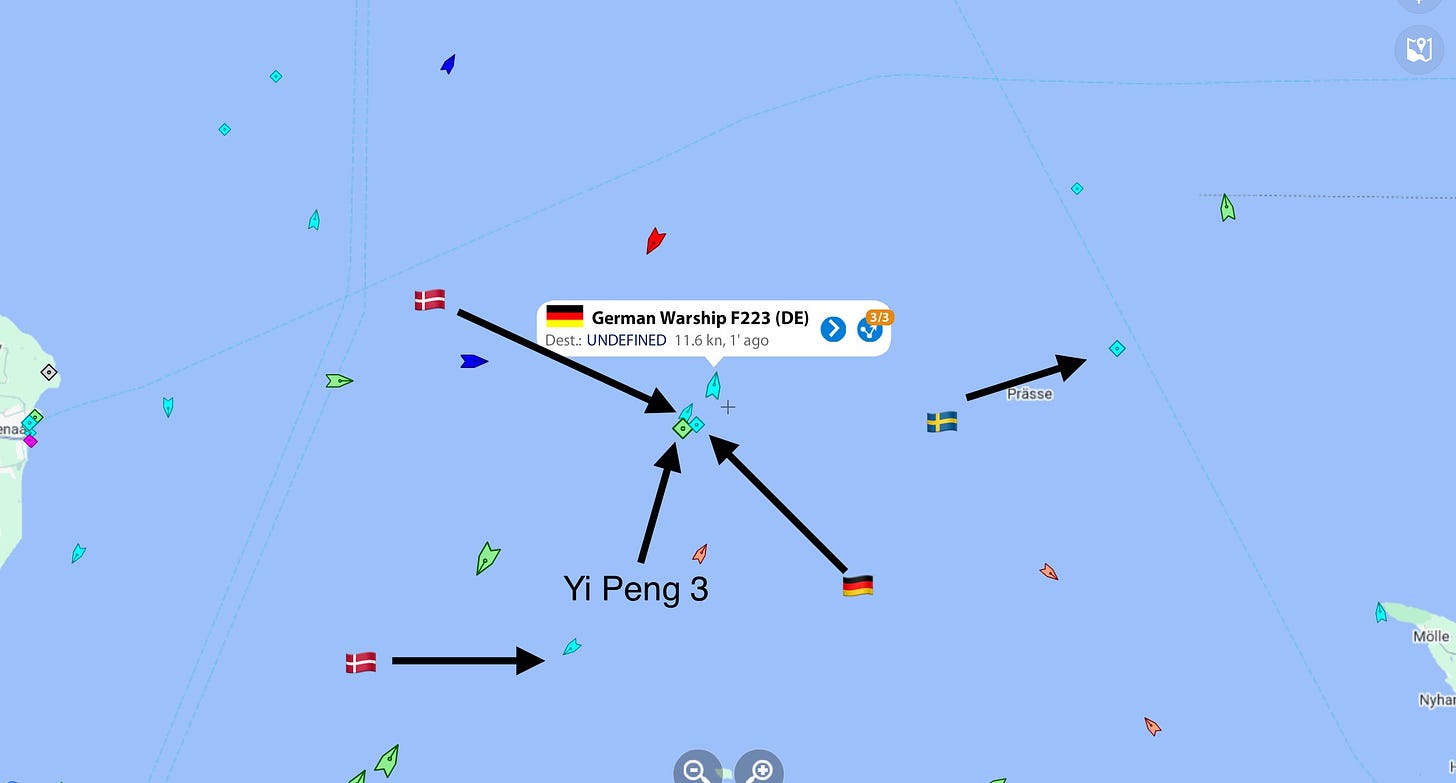

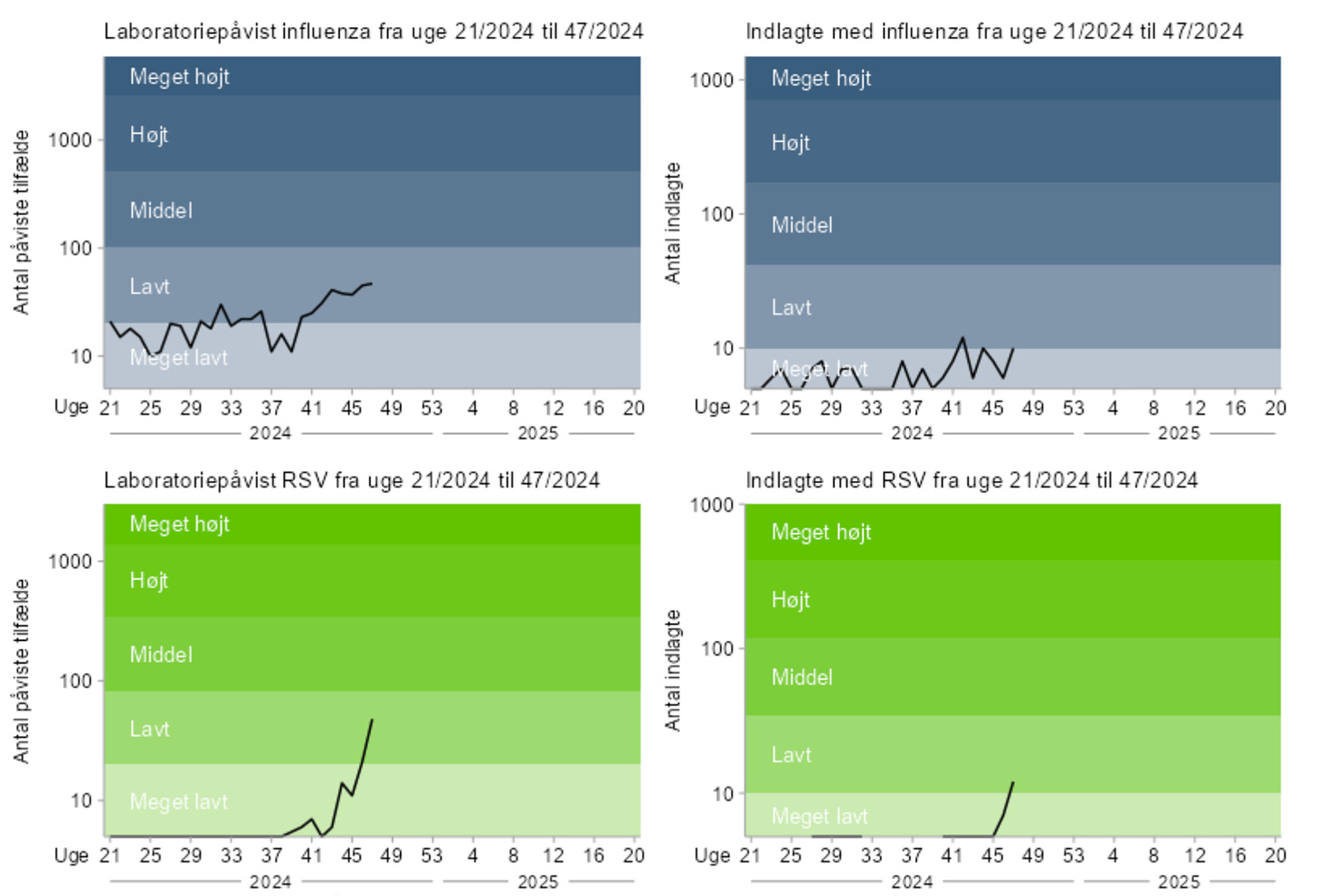
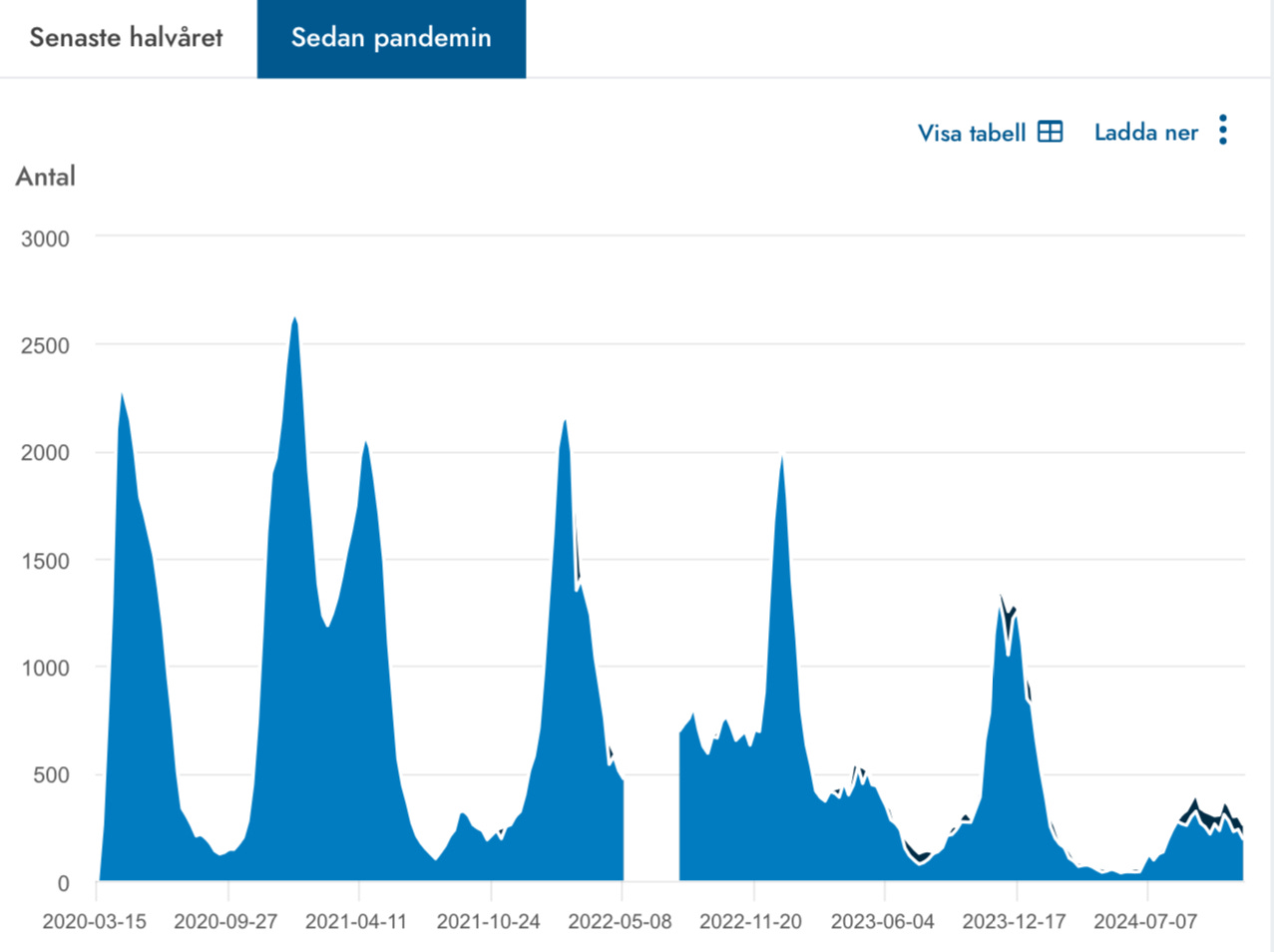
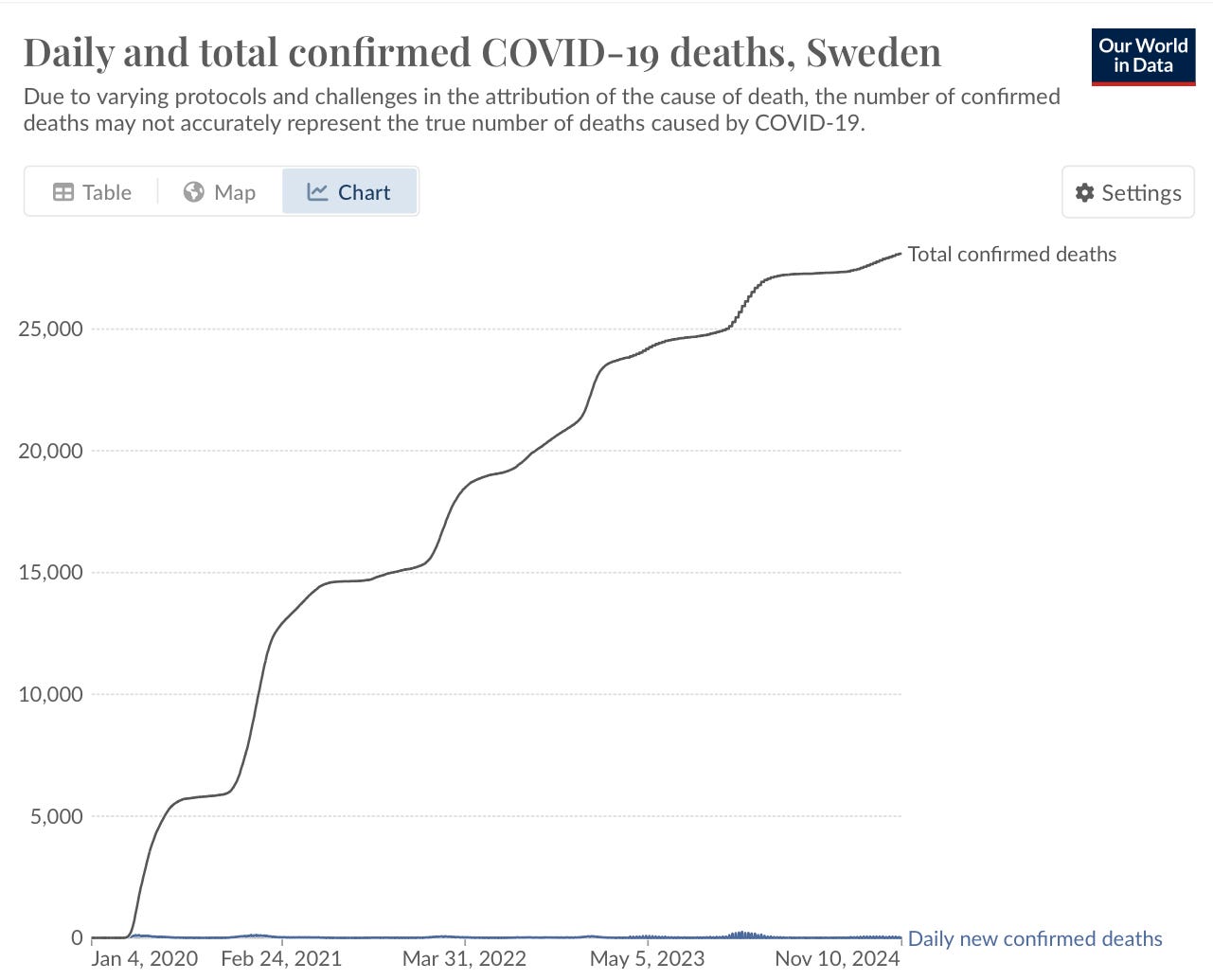
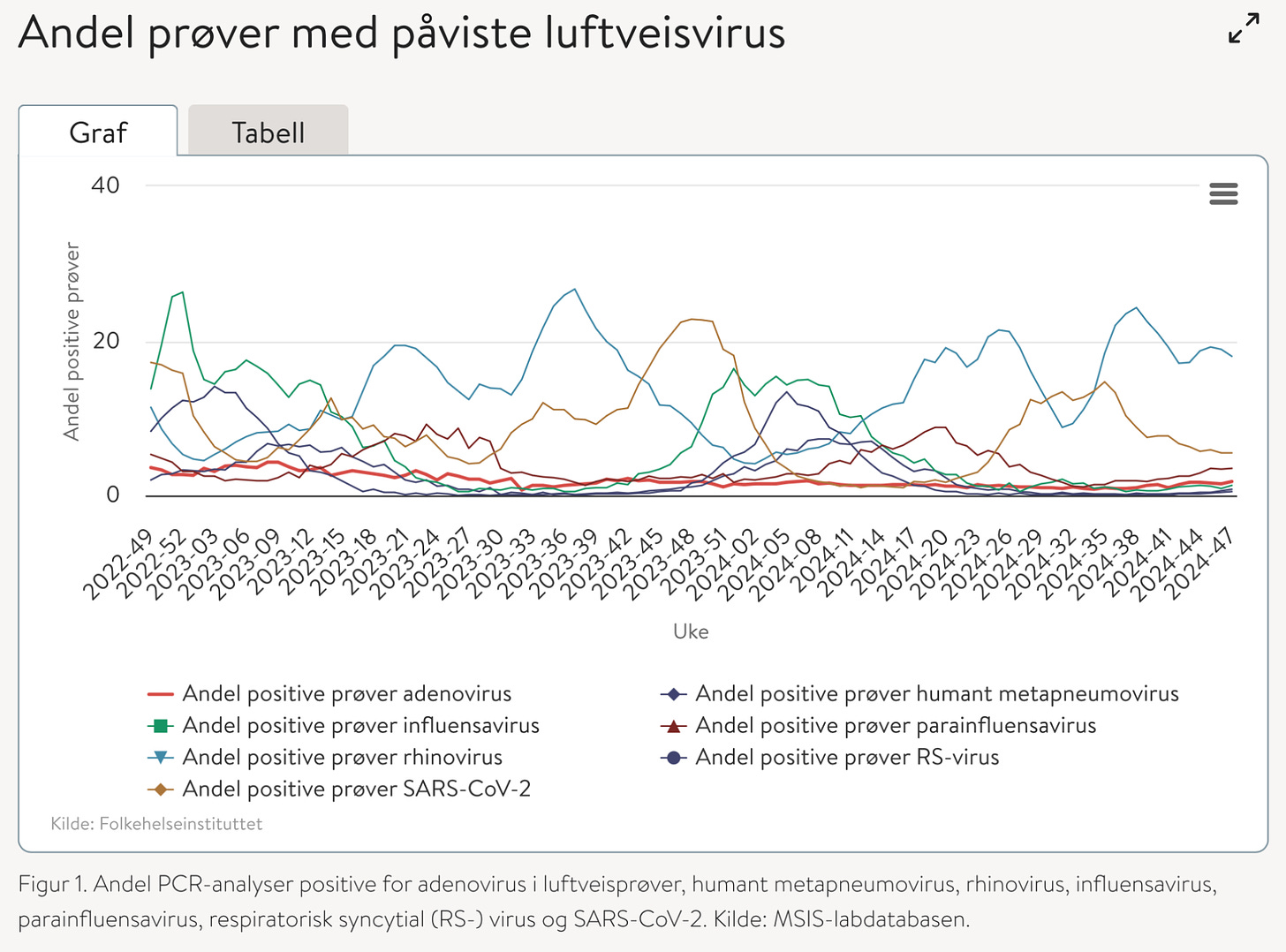
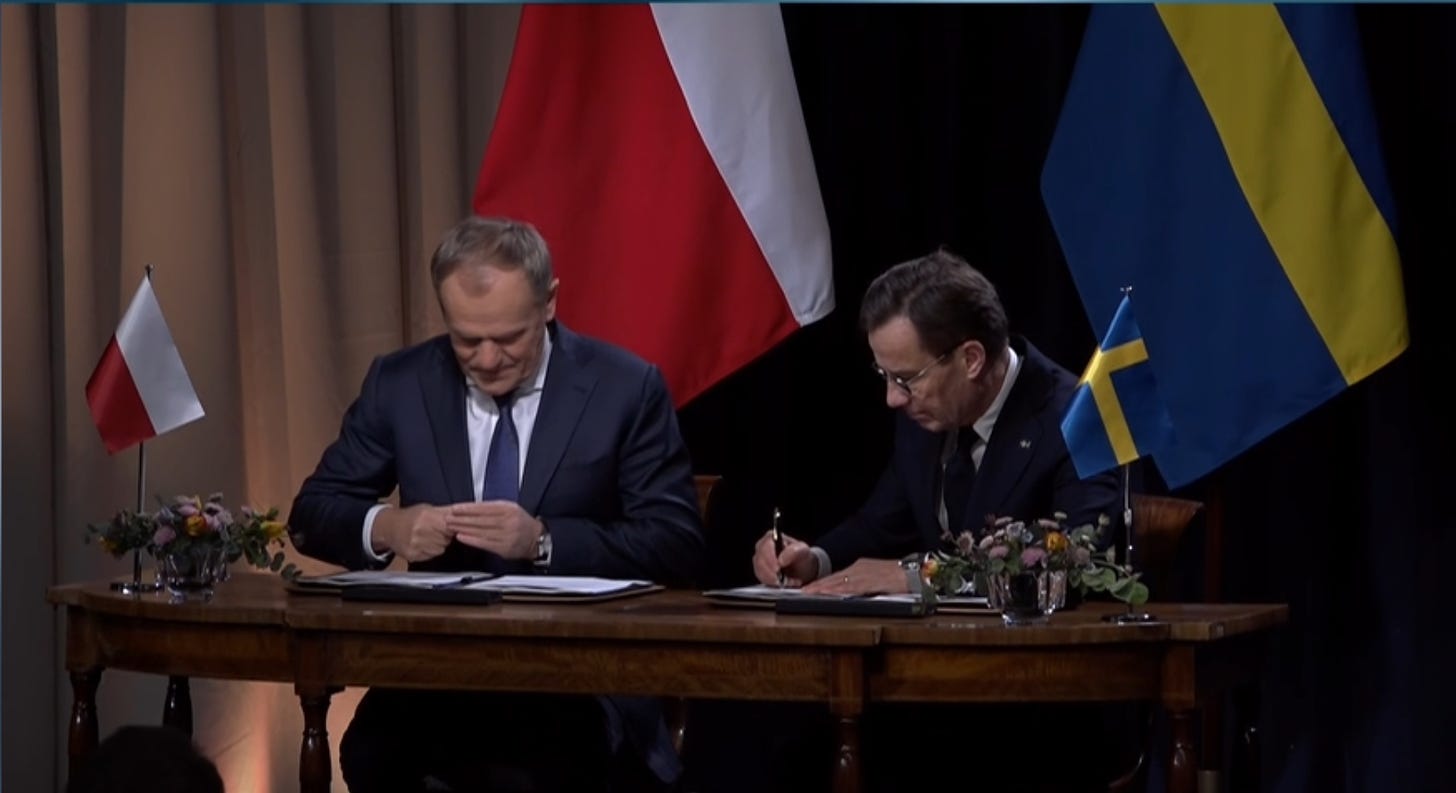
Snow tires are mandatory from Oct 1 to April 30 on all roads beyond Hope BC. An excellent law.